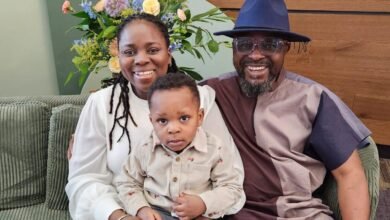Building a Culture and Legacy of Discipline Rooted in Love and Trust

As a 55-year-old father raising my first child, a 3-year-old son, I have come to a profound realization: discipline cannot and must not exist as a standalone concept. It must be part of a broader culture of discipline, forged not by rules alone but by the consistency of our example. Children don’t grow by what we say, they grow by what we show. They mirror who we are, not merely what we instruct.
Like water poured into a mold, a forming child will assume the shape of the culture around him. That mold includes personal example, family values, social norms, and national ethos. Therefore, the quality of our children’s character is a direct report of our example, our systems, and our investments.
That is why I say without hesitation: parents deserve the children we raise. Communities deserve the young people we raise. Nations deserve the legacy we either nurtured or neglected. If we want different outcomes, we must revisit our inputs.
I’ve also discovered another deeply sobering truth: our children treat themselves the way we treat ourselves. If we model compassion, they learn self-worth. If we live in anxiety, they inherit unrest. If we constantly criticize ourselves, they adopt self-condemnation. As Scripture says, “Love your neighbor as yourself.” You can’t give what you don’t have. You can’t teach a child self-love if you live in self-contempt.
We often believe we can manage what our children watch through censorship. But the research is clear: parental control is ineffective if not matched by parental modeling. Children watch what their parents watch. What informs you, forms them. Your choices teach louder than your commands ever will.
So how am I building trust with my son? Not by demanding obedience, but by modeling reliability. I strive to keep my promises. When I fail, I apologize. I tell him when I’m wrong. That’s not weakness, that’s leadership.
When I ask him, “Have you eaten your food?” and he says yes, I take his word. When he tells me he’s cleaned his room, I affirm it without checking. Sometimes, I later discover he didn’t. But the seed is what matters: my dad believes me. I’m raising a boy who will grow into a man who knows the weight of his own words.
That’s not naivety. That’s strategic parenting.
If I want my child to tell me the truth in times of trouble, I must first prove, today that his truth matters to me. Trust is not taught; it is built, brick by brick, by showing our children that their honesty has value.
Unless my confirmation is necessary to protect him or mitigate risk, I will take his word for it. And in those cases where verification is needed, I’ll do so without undermining his integrity.
If I later discover that he hasn’t done what he claimed, I won’t rub it in. I’ll simply guide him again, patiently, calmly. Because I’m deliberately building a culture of trust. I know I must sow trust if I ever hope to reap it, now or in the future.
A time is coming when I’ll need him to trust me, not just for himself, but for our family and the world around him. That’s why I must sow the seed of trust deliberately, purposefully, and painstakingly today, lest I one day attempt to reap where I have not sown.
My wife once shared a story from her childhood. One day, she was accused of something and her father called her in. He looked into her eyes and said, “Whatever you tell me, I will believe.” She denied the act. He responded, “Then that’s it. I believe you.”
She told me she couldn’t sleep that night. The trust was so weighty, so sacred, it convicted her. From that day forward, she resolved to always tell him the truth. That’s what trust does. It doesn’t just correct a child’s behavior. It transforms a child’s conscience.
We must raise a generation whose confidence isn’t built on fear or punishment, but on dignity, modeling, and shared humanity. Because discipline is not punishment. It is formation. Formation of character, of vision, of conscience.
Let us raise our standards, not just our voices.
And in doing so, may we raise children who don’t just behave well in our presence, but thrive in our absence.
Do have an INSPIRED week ahead with the family.


